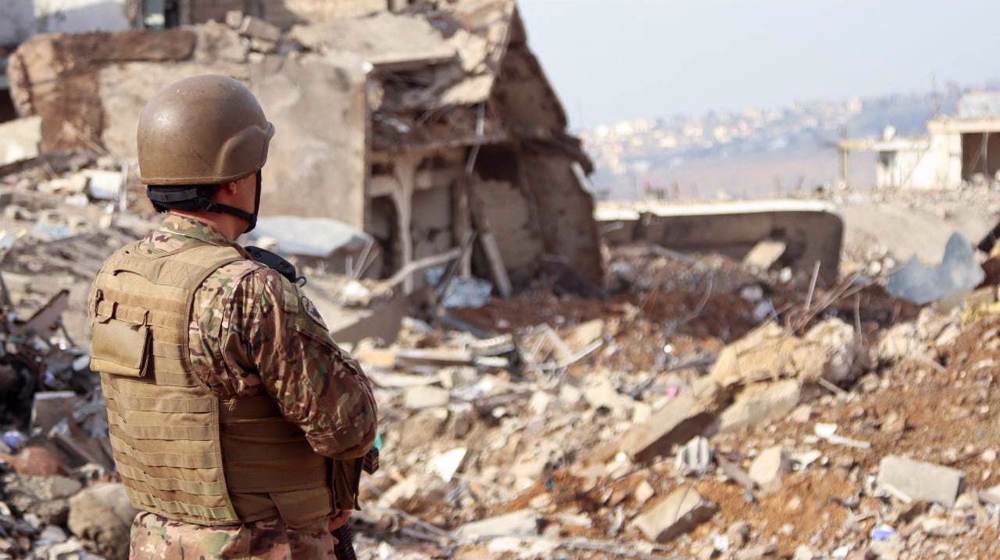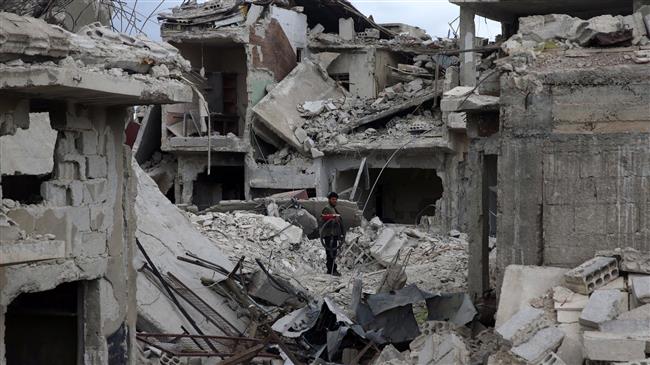Lebanon to file complaint with UN against Israeli violations of airspace
Lebanon’s Foreign Ministry has strongly denounced recent Israeli violations of Lebanon’s airspace to launch airstrikes in Syria, saying Beirut intends to lodge a formal complaint with the United Nations Security Council.
“The Foreign Ministry condemns the air raids launched at the Syrian Arab Republic and affirms its previous position that Lebanon's airspace should not be used to attack Syria. Lebanon will make a formal complaint with the UN Security Council,” said a statement released by the ministry on Tuesday.
Early on Monday, a pair of Israeli F-15 warplanes carried out strikes from Lebanese air space on T-4 air base in Homs that killed and wounded a number of people. Syrian air defense systems shot down five out of eight missiles fired.
Shortly after the airstrikes, Damascus warned about the “dangerous repercussions” of Israeli assaults on its territories, stressing that the recent attack on Homs would not have been possible without massive US support.
In a statement, Lebanon’s Army Command-Orientation Directorate, however, said that four Israeli warplanes had breached Lebanon's airspace to conduct the airstrikes.
According to the statement, the fighter jets violated the Lebanese airspace at 3:25 a.m. local time flying over the sea to the west of Jounieh, a coastal city about 16 kilometers north of the Lebanese capital, adding that the warplanes had flown east over the city of Baalbek and then left the country’s airspace at 3:35 a.m. local time.
The Lebanese people have also called on the government to take serious measures to stop Israel’s violations of their country’s sovereignty. The call comes as observers in Lebanon are calling for retaliatory measures against Israel, which has a long history of violating Lebanon’s sovereignty and targeting Lebanese patrol soldiers. It also violates Lebanon’s airspace on an almost daily basis by sending in drones on spy missions.
The occupying regime has already launched two wholesale wars on the Arab country in 2000 and 2006, in both of which the Hezbollah resistance movement, backed by the Lebanese National Army, inflicted heavy losses on the Israeli military. However, Israeli officials have even threatened another war on Lebanon.

Tel Aviv further exasperates Lebanon by making plans to erect walls on reservation areas along the Blue Line, the UN-designated line, which set the limits for Israel’s withdrawal from southern Lebanon in 2000.
Beirut says the wall passes through territory which belongs to Lebanon but is located on the Blue Line. President Michel Aoun has already said the wall would breach Lebanese territory at 13 different points, calling for “corrections” along the Blue Line.
VIDEO | Press TV's news headlines
VIDEO | Israel and Iran’s Nuclear Facilities?
At least three killed as Israel bombs Sana'a airport, power plant
Palestinian children freeze to death amid Israeli carnage in Gaza
Houthi: Yemen’s hypersonic missiles have surprised enemy
Israel makes deepened incursion into Lebanon despite truce
IRGC intelligence forces capture agent linked to foreign espionage service
VIDEO | Palestinians in Yarmouk Camp cling to hope and determination















 This makes it easy to access the Press TV website
This makes it easy to access the Press TV website